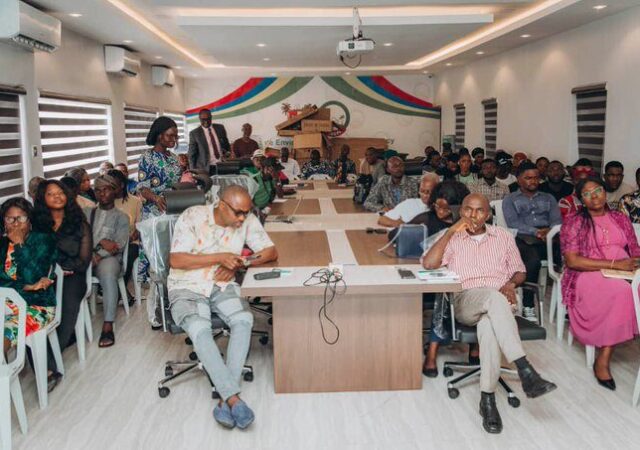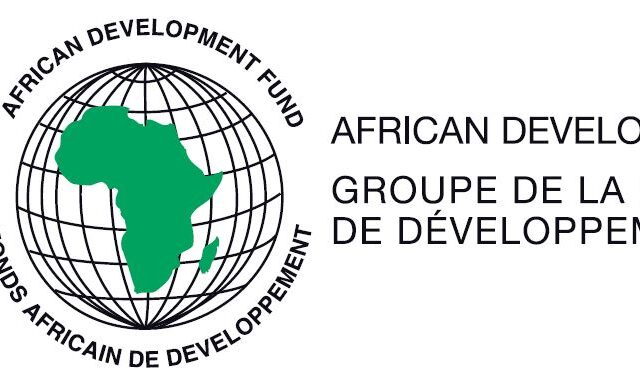The Nigeria Customs Service (NCS) has taken a significant step toward advancing Nigeria’s clean energy agenda with the formal introduction of streamlined import procedures for renewable energy and energy-efficient technologies.
This development was unveiled during the NCS Trade Facilitation Consultative Forum held in Lagos on Monday, May 19, 2025, themed: “Trade Facilitation Measures for Renewable Energy and Energy-Efficient Technologies.” The forum convened critical stakeholders from government, industry, and international organizations to discuss the role of trade policies in accelerating the nation’s energy transition.
In his keynote address, Comptroller-General of Customs (CGC) Bashir Adeniyi, represented by Deputy Comptroller-General Caroline Niagwan (Tariff and Trade Facilitation), reaffirmed the agency’s commitment to implementing trade facilitation strategies aligned with Nigeria’s net-zero targets by 2060.
“Our mission is to drive a shift away from fossil fuels by offering regulatory incentives and tariff exemptions for clean energy adoption,” Adeniyi stated. “We are prioritizing duty-free and VAT-free classification for critical renewable energy components such as solar panels.”
The NCS detailed the introduction of new Harmonized System (HS) codes specific to renewable energy technologies, designed to ensure uniform classification and equitable treatment of clean energy imports. Additionally, procedures will be streamlined to enhance operational efficiency for compliant companies in the sector.
The Green Customs Initiative was also spotlighted, reinforcing the NCS’s alignment with Multilateral Environmental Agreements (MEAs) and its role in supporting environmental protection.
Speaking on the government’s overarching strategy, Adeniyi emphasized the leadership of President Bola Tinubu, whose administration is focused on promoting sustainability and encouraging responsible industrial practices in line with the Nigeria Energy Transition Plan (ETP).
In his welcome remarks, Assistant Comptroller-General Charles Orbih (Zone A) highlighted NCS’s adaptive approach to modern customs administration.
“Our emphasis on renewable energy showcases our commitment to innovation and global collaboration. We are proud to host this forum in partnership with GIZ, the Nigeria Energy Support Programme (NESP), and other stakeholders,” Orbih said.
Federal Ministry of Power Permanent Secretary, Alh. Mamudah Mamman, noted that efficient customs procedures are vital for improving access to renewable energy technologies.
“Trade facilitation directly reduces cross-border barriers and lowers costs associated with clean energy imports, attracting investment and technical expertise that drives innovation,” he said.
Representing the European Union Delegation, Mrs. Thessa Bagu underscored the EU’s commitment to Nigeria’s green growth through collaborative partnerships.
“This forum affirms our shared responsibility to align trade policy with sustainable development and climate goals,” Bagu said, on behalf of Mr. Massimo De Luca, Head of Cooperation, EU Delegation to Nigeria and ECOWAS.
Private-sector representatives echoed the benefits of these reforms. Mr. Agu Boniface, Logistics Manager at CIG Motors, shared how the Advance Ruling Programme streamlined customs clearance, reducing processing time to as little as seven days.
“The Advance Ruling response came within 15 days and our cargo delivery was processed in a week—this efficiency has greatly enhanced our operations,” Boniface said.
Dr. Markus Wagner, GIZ Country Director (Nigeria and ECOWAS), praised NCS’s proactive approach.
“By simplifying procedures for importing renewable energy components, NCS has made real progress in supporting Nigeria’s low-carbon development,” he said, citing visible improvements in clearance speed and administrative ease.
One of the forum’s key outcomes was the launch of a comprehensive Handbook on Import and Export Procedures for Renewable Energy and Energy-Efficient Technologies. The document aims to serve as a practical resource for stakeholders navigating customs regulations.
NCS Public Relations Officer, Assistant Comptroller Abdullah Maiwada, also emphasized the importance of strategic communication in driving the success of trade policy.
“Effective communication transforms policy into practice. It ensures that stakeholders are informed, engaged, and aligned in achieving our sustainability targets,” he said during his presentation, “The Role of Effective Communication Strategy as a Variable Tool to Deepen Trade Facilitation.”
The forum concluded with a collective call to action: continued collaboration between public agencies, the private sector, and international partners is essential to reinforcing Nigeria’s energy transition through transparent, efficient, and environmentally responsible customs practices.






